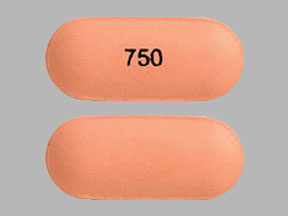Niaspan Side Effects
Generic name: niacin
Medically reviewed by Drugs.com. Last updated on Jul 16, 2025.
Note: This document provides detailed information about Niaspan Side Effects associated with niacin. Some dosage forms listed on this page may not apply specifically to the brand name Niaspan.
Applies to niacin: oral capsule, oral capsule extended release, oral tablet, oral tablet extended release.
Precautions
It is very important that your doctor check your progress at regular visits. This will allow your doctor to see if the medicine is working properly to lower your cholesterol and triglycerides and if you should continue to take it. Blood and urine tests may be needed to check for unwanted effects.
Check with your doctor right away if you have dark-colored urine, diarrhea, a fever, muscle cramps or spasms, muscle pain or stiffness, or feel very tired or weak. These could be symptoms of a serious muscle problem called rhabdomyolysis, which can cause kidney problems.
Check with your doctor right away if you have pain or tenderness in the upper stomach, pale stools, dark urine, loss of appetite, nausea, unusual tiredness or weakness, or yellow eyes or skin. These could be symptoms of a serious liver problem.
This medicine may affect blood sugar levels. If you notice a change in the results of your blood or urine sugar tests or if you have any questions, check with your doctor.
This medicine may cause you to feel dizzy or faint, especially when you get up from a lying or sitting position. Getting up slowly may help. This effect should lessen after a week or two as your body gets used to the medicine. However, if the problem continues or gets worse, check with your doctor.
Do not stop taking niacin (the active ingredient contained in Niaspan) without first checking with your doctor. When you Stop taking niacin, your blood cholesterol levels may increase again. Your doctor may want you to follow a special diet to help prevent this from happening.
Before you have any medical tests, tell the medical doctor in charge that you are taking this medicine. The results of some tests may be affected by this medicine.
Do not take vitamins or other dietary supplements unless they have been discussed with your doctor. This especially includes vitamins or dietary supplements that contain niacin or similar ingredients.
Serious side effects of Niaspan
Along with its needed effects, niacin may cause some unwanted effects. Although not all of these side effects may occur, if they do occur they may need medical attention.
Check with your doctor immediately if any of the following side effects occur while taking niacin:
Less common side effects
- darkening of urine
- light gray-colored stools
- loss of appetite
- severe stomach pain
- yellow eyes or skin
Other side effects of Niaspan
Some side effects of niacin may occur that usually do not need medical attention. These side effects may go away during treatment as your body adjusts to the medicine. Also, your health care professional may be able to tell you about ways to prevent or reduce some of these side effects.
Check with your health care professional if any of the following side effects continue or are bothersome or if you have any questions about them:
Less common side effects
Incidence not known
- dizziness or faintness
- dryness of the skin
- fever
- frequent urination
- joint pain
- muscle aching or cramping
- side, lower back, or stomach pain
- swelling of the feet or lower legs
- unusual thirst
- unusual tiredness or weakness
- unusually fast, slow, or irregular heartbeat
See also:
For healthcare professionals
Applies to niacin: compounding powder, oral capsule, oral capsule extended release, oral liquid, oral tablet, oral tablet extended release.
Cardiovascular adverse events
- Very common (10% or more): Flushing (i.e., warmth, redness, itching, and/or tingling) (up to 88%)
- Frequency not reported: Tachycardia, palpitations, atrial fibrillation, other cardiac arrhythmias, syncope, hypotension, postural hypotension[Ref]
Dermatologic
- Common (1% to 10%): Rash, pruritus
- Frequency not reported: Sweating, skin burning sensation, maculopapular rash, dry skin
- Postmarketing reports: Skin discoloration[Ref]
Gastrointestinal
- Very common (10% or more): Diarrhea (up to 14%), nausea (up to 11%)
- Common (1% to 10%): Vomiting
- Frequency not reported: Peptic ulcers, eructation, flatulence[Ref]
Hematologic
- Postmarketing reports: Slight reductions in platelet counts, prothrombin time prolonged[Ref]
Hypersensitivity
- Postmarketing reports: Hypersensitivity reactions (e.g., anaphylaxis, angioedema, urticaria, flushing, dyspnea, tongue edema, larynx edema, face edema, peripheral edema, laryngismus, vesiculobullous rash)[Ref]
Hepatic
Metabolic
- Frequency not reported: Decreased glucose tolerance, gout[Ref]
Musculoskeletal
- Frequency not reported: Myalgia, myopathy[Ref]
Nervous system
- Frequency not reported: Dizziness, syncope
- Postmarketing reports: Migraine, asthenia, paresthesia[Ref]
Ocular
- Postmarketing reports: Blurred vision, macular edema[Ref]
Psychiatric
Other
- Frequency not reported: Chills, edema[Ref]
Respiratory
- Common (1% to 10%): Cough increased
- Frequency not reported: Dyspnea[Ref]
References
1. (2017) "Product Information. Niacin (niacin)." 21st Century Healthcare Inc
2. (2017) "Product Information. Niacor (niacin)." Upsher-Smith Laboratories Inc
Frequently asked questions
More about Niaspan (niacin)
- Check interactions
- Compare alternatives
- Reviews (28)
- Drug images
- Dosage information
- During pregnancy
- Drug class: miscellaneous antihyperlipidemic agents
Patient resources
Other brands
B3-500-Gr, Niacin SR, Endur-acin, Slo-Niacin, ... +4 more
Professional resources
Other brands
Related treatment guides
Further information
Niaspan side effects can vary depending on the individual. Always consult your healthcare provider to ensure the information displayed on this page applies to your personal circumstances.
Note: Medication side effects may be underreported. If you are experiencing side effects that are not listed, submit a report to the FDA by following this guide.

